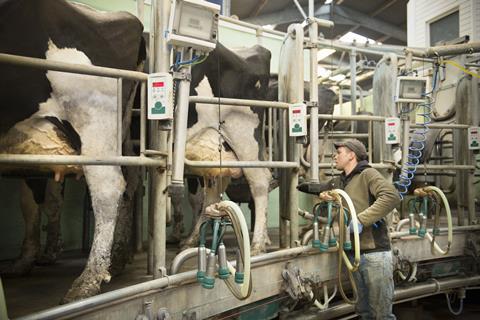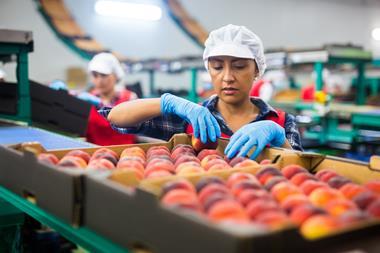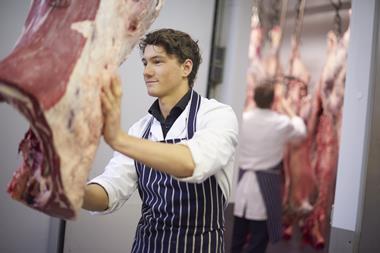
Shortages of workers in farming and manufacturing is putting pressure on the nation’s food security, Arla Foods has warned.
The dairy giant has said urgent action is needed to meet the scale of the challenge.
The annual survey, conducted across Arla’s 1,900 British farmers, has revealed that finding people to work on farms who have the right skills and experience continues to be a chronic issue.
Similarly to 2024, five in six farmers who have tried to fill a vacancy say they have had very few qualified applicants – or no applicants at all.
“Farmers are responsible for feeding a nation, with over 98% of people having milk in their fridge,” said Bas Padberg, managing director of Arla Foods UK. “What we’re seeing is the real impact of these workforce shortages on our farming industry, whether that’s in higher costs or lower milk production.
“The effect of this is ultimately going to be seen in the price and availability of products on the supermarket shelves, affecting the millions of people that rely on dairy as a source of nutrition in their diet.”
Arla said the problem had been difficult for a while but had got progressively worse over the years since Arla’s research started, now at around 84%, compared with 79% in 2021.
As a result of the continuing challenge to find labour, 6% have cut output and 13% say they will leave farming altogether in the next 12 months if the situation does not improve.
The results also highlighted the challenge of expanding the pool of potential recruits by bringing a more diverse group of people from outside the sector into agriculture.
More than 47% of farmers are aged 55 or over and only 3% of farmers say they are first-generation, while more than 66% have passed their farms down at least four generations.
“We know the government has acknowledged the problem and welcome a focus on talent and development as part of the forthcoming food strategy,” said Padberg. “But we need to act quickly, and we need practical steps that the industry, the education sector and government can take together to support more opportunities for inclusion and growth.”
Read more: Policy changes making recruitment ‘very difficult’ for meat sector
In addition to changes to apprenticeships and training regimes across the supply chain, Arla is calling for action to be taken to tackle misconceptions about food and farming that discourage people from considering the sector for a career.
One Arla farmer, Heather Davies, warned there was a “clear disconnect between the education system and pathways into agriculture”.
“Despite the incredible variety and fulfilment that a career in farming offers, we struggle to attract people to the industry,” she said. “This is an industry that will always need skilled people, and we must do more to communicate the value and potential of a career in agriculture.”
The problem also extends beyond the farm, with shortages also an issue across the wider supply chain. The dairy giant pointed to an average recruitment time of 116 days to bring in engineers.
“We really see a bright future for UK food manufacturing, and this is signalled in the £390m investment we are making in our sites,” said Padberg. “We want more people to be part of this future and help us to produce nutritious and exciting products that people want to eat.”
This comes following warnings from the meat sector that recruitment of foreign workers had been made more difficult by government policy changes.



















No comments yet